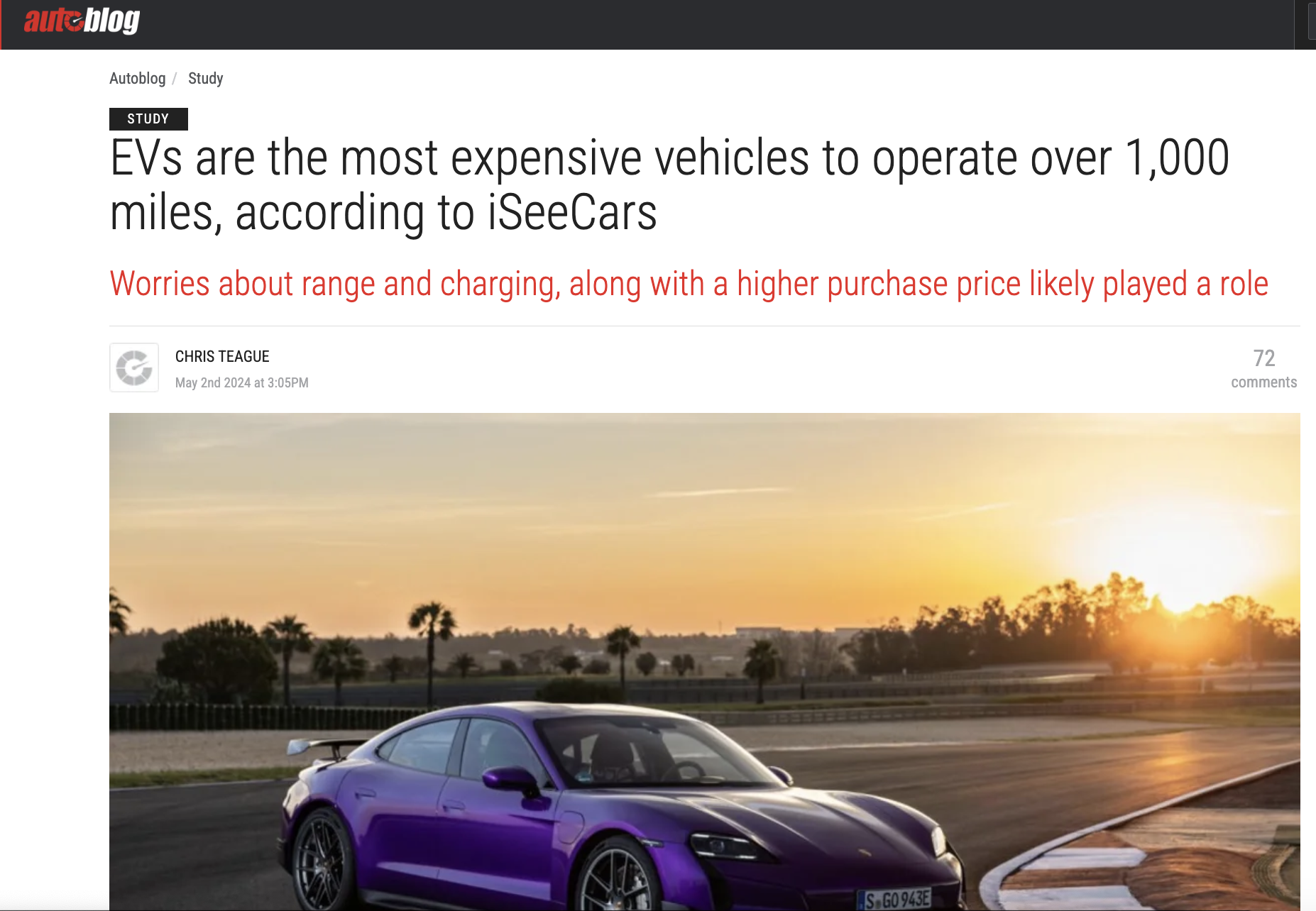Electric vehicles are often touted as the green alternative to gas-powered vehicles, but one expert believes that if people knew the truth about EVs, they would think twice before purchasing one.
Bryan Dean Wright, a former CIA operations officer and host of the podcast “The Wright Report,” told Fox News Digital that electric vehicles pose environmental problems, national security issues and compromise the safety of drivers, making them a less than desirable alternative to gas-powered vehicles.
Wright said that one of the most important things to consider when buying an electric vehicle is whether it is actually green. It is his belief that they are actually quite “dirty.” Starting with their batteries, he explained that thousands of pounds of minerals, including cobalt, lithium and nickel from all around the world have to first be extracted.
The Congo is the source of 70% of the world’s cobalt. Of that, about a third come from miners who are “mostly kids,” Wright said.
CAR DEALERS THROW COLD WATER ON ELECTRIC VEHICLES VERSUS GAS OPTIONS: ‘I WOULDN’T FEEL SAFE’

An aerial view of an EV charging station. (Justin Sullivan/Getty Images / Getty Images)
“That is a horrific thing, imagining these child miners pulling this stuff out of the ground to make our green cars go, but that is true,” he said. “Also, we know about the 19 cobalt mines in the Congo, 15 of them are controlled by the Chinese government or a Chinese entity.”
Lithium mostly comes from Australia, but a large amount also comes from the Atacama Desert in South America, also known as the lithium triangle, Wright said. The lithium mining process is problematic for the region because the land is extraordinarily dry, but the lithium extraction requires large amounts of water, requiring about 500,000 gallons needed to produce a single ton, he explained.
Because water is such a coveted resource in the region, Wright said it has caused tension in the region between governments, mining companies and local, especially indigenous people, about how the water should be used.
“We are removing the one critical resource by a lot of those indigenous folks down there, so we can have our green and clean car,” he said.
Nickel, which is also vital to EV battery production, primarily comes from Indonesia and is extracted using sulfuric acid, but he said the way the metal is mined poses environmental problems.
There are two different approaches to mining nickel, one involves an energy-intensive process that requires coal-fired furnaces, which he said is damaging to the Indonesian environment and its people and the second is through chemical extraction using sulphuric acid. Once you’ve finished mining for nickel, it needs to be disposed of either in tailing ponds or dried and stacked both of which pose environmental problems.
Just through the extraction process, he explained, there is the exploitation of child labor and environmental damage. But then, the minerals are sent to China, where about 80% of the batteries’ raw materials are refined.
“But that’s just the beginning,” Wright said. “We haven’t even gotten into the car to start to drive.”
“So imagining we get into that car, we have a few different concerns,” he continued. “First, we’ve got a national security concern, that car is basically a computer on wheels. So as that thing drives, it’s going to both get things d





